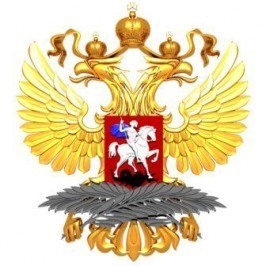We noted the latest press release from the UN Secretariat on the Black Sea Initiative for the export of Ukrainian food, which once again distorts data and facts. In this regard, we have to clarify the real state of affairs both with the implementation of the Black Sea Initiative and with the Russia-UN Memorandum on promoting domestic agricultural exports. These documents, as is known, are interconnected parts of the package proposed by UN Secretary-General Antonio Guterres.
The UN press release addresses the failure to carry out inspections at the Joint Coordination Centre (JCC) in Istanbul for the first time since the initiative launched. It must be noted that neither Kiev’s continued blocking of ammonia supplies, also prescribed in the agreements, nor the lack of any progress in the implementation of the Russia-UN Memorandum has ever caused the UN Secretariat to make a public response.
About the inspections. Today, 28 ships carrying more than 1 million tonnes of food are awaiting inspection in Turkish territorial waters. However, the UN staff at the JCC, which is responsible for the inspection plan, has refused to draw up such a schedule, trying to support the Ukrainians’ demands for the registration of ships engaged in the initiative.
In its turn, the situation around the registration of dry cargo is even more complicated. First, the Ukrainians drove ships into Turkish waters strictly for their selfish purposes, regardless of either the procedure of their inclusion in the initiative envisaged in the rules, or the requirements for screening. At the same time, Russia was accused of provoking traffic jams and creating artificial ship congestion. Then the administration of the Ukrainian ports realised that they could also make money off the order of passing ships, and began to take bribes from ship-owners to fast-track registration. This corruption story was widely covered even in the Ukrainian media.
In these conditions, as well as due to a significant increase in supplies for rich countries (more than 40 percent went to the EU alone) amid a reduction of the share for countries in need (down to 2.6 percent), which runs counter to the initially declared humanitarian goals of the initiative, the Russian delegation proposed to include the list of ships carrying food for African countries and/or those in line since January in the Ukrainian registration. This, however, drew an antagonistic reaction from the Ukrainians, who did not want to lose a source of additional illegal income and cancelled all applications on April 5 (which was not mentioned in the UN press release). Thus, as a result of the actions of the Ukrainians themselves and the UN members, the registration and inspection of ships stalled.
In general, we note that, despite all the grandiloquent statements made about global food security and assistance to countries in need, the Black Sea Initiative has served Kiev’s commercial exports exclusively in the interests of Western countries. The UN World Food Programme’s share of humanitarian deliveries (543,928 tonnes) looks ludicrous compared with the total volume of food exports (27.7 million tonnes). But Kiev is trying to use even these deliveries for political purposes, such as advertising its Grain from Ukrainepseudo-humanitarian campaign.
In addition to this, UN representatives like to cite FAO indicators, saying that world food prices have fallen (not by 20.5 percent but by 18.6 percent since March 2022), though they keep silent about the fact that prices, especially for wheat, remain too high and unaffordable for many consumers. One of the reasons for this is that 70 percent of Ukrainian exports are fodder corn and fodder crops.
They also forget to say that normalising the supply of Russian crops (70 percent wheat), as well as fertilisers, which are key to the future harvest, would also help solve this problem. However, even the free delivery of our fertilisers to the poorest countries meets many obstacles and delays: so far, the shipment to Malawi remains the only released consignment (20,000 out of the 262,000 tonnes blocked in the ports of Latvia, Estonia, Belgium and the Netherlands).
The removal of obstacles to Russian agricultural exports was supposed to take place as part of the Russia-UN Memorandum, which the UN did not even mention this time. Such silence is not only a clear indicator of the UN Secretariat’s attitude to the package Antonio Guterres proposed, but also of the absence of any practical results regarding the Memorandum.
In this context, Russia reaffirms its position that there can be no discussion of the Black Sea Initiative after May 18 without any progress regarding the five systematic problems (reconnecting Rosselkhozbank to SWIFT; resuming supplies of agricultural machinery, spare parts and maintenance service; lifting restrictions on insurance and reinsurance, plus unblocking access to ports; restoring the work of the Tolyatti-Odessa ammonia pipeline; and unblocking foreign assets and accounts of Russian companies related to the production and transportation of food and fertilisers).























